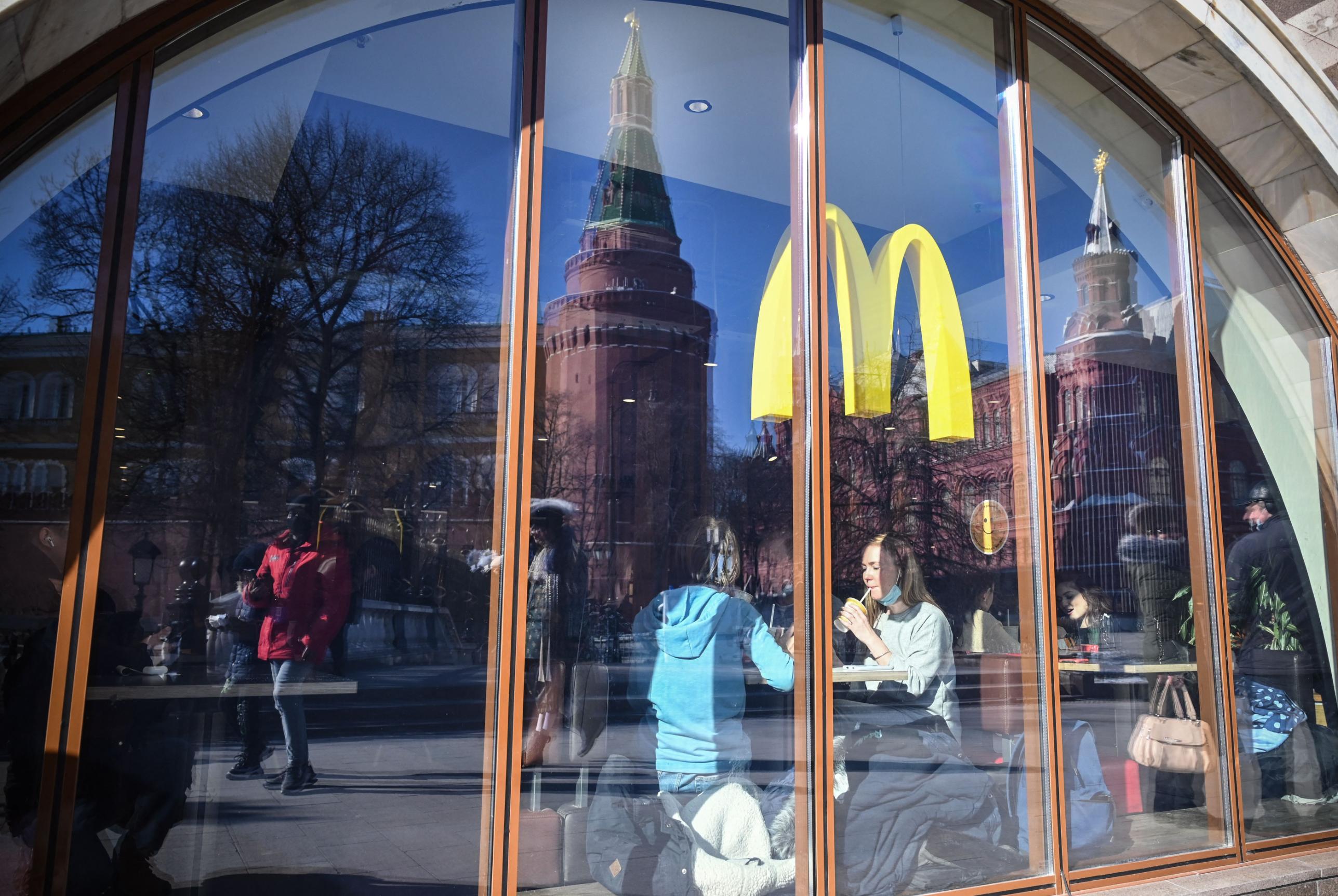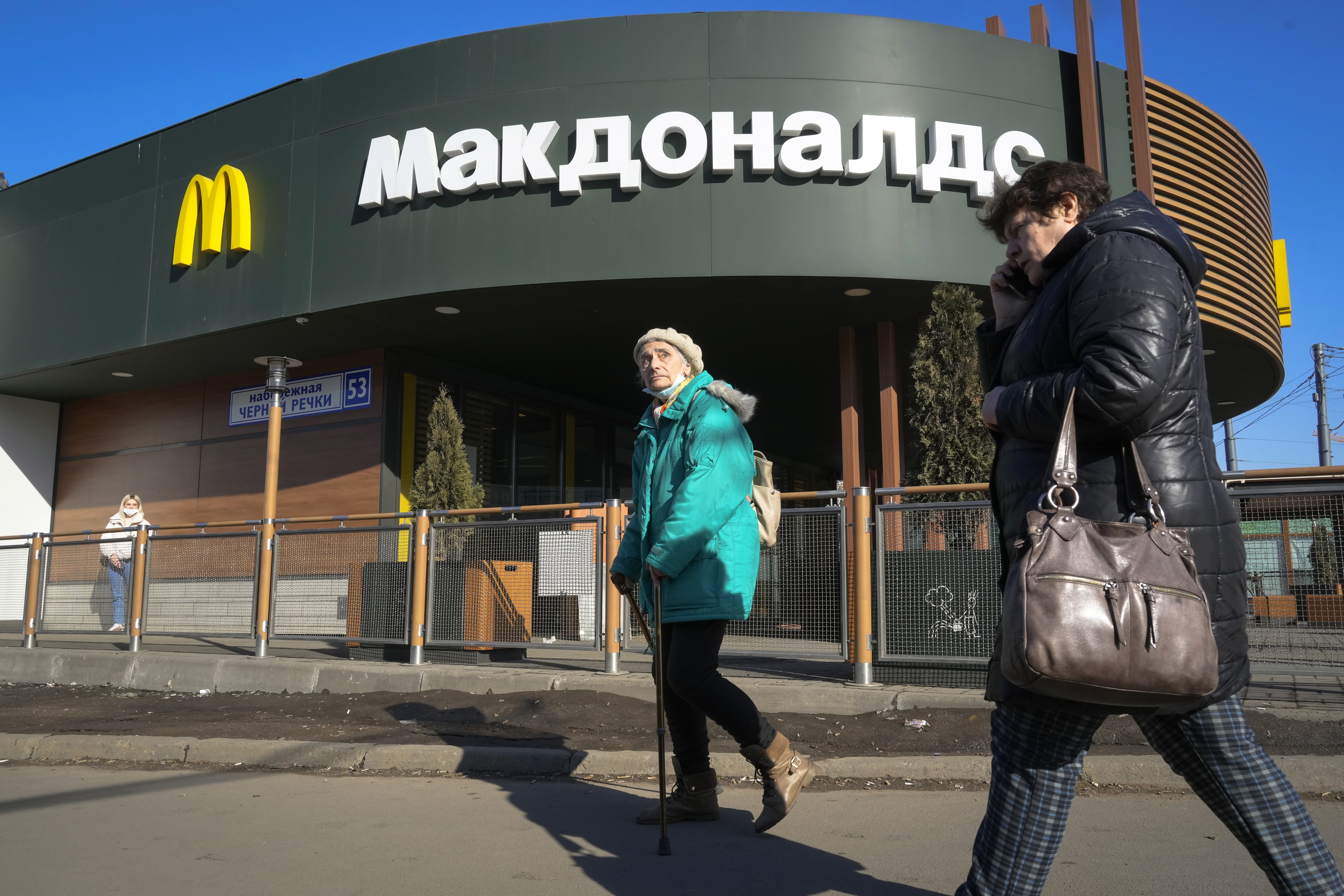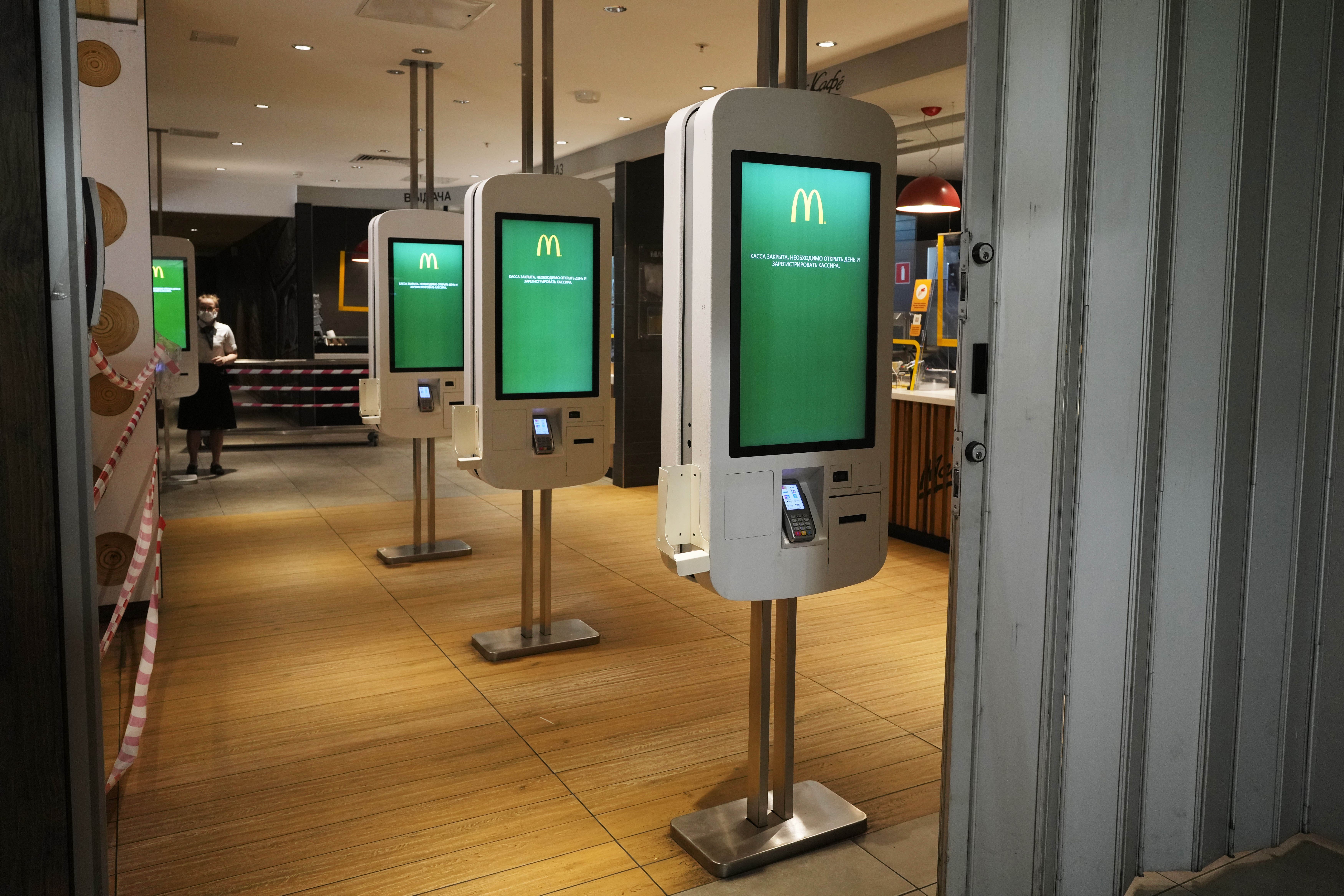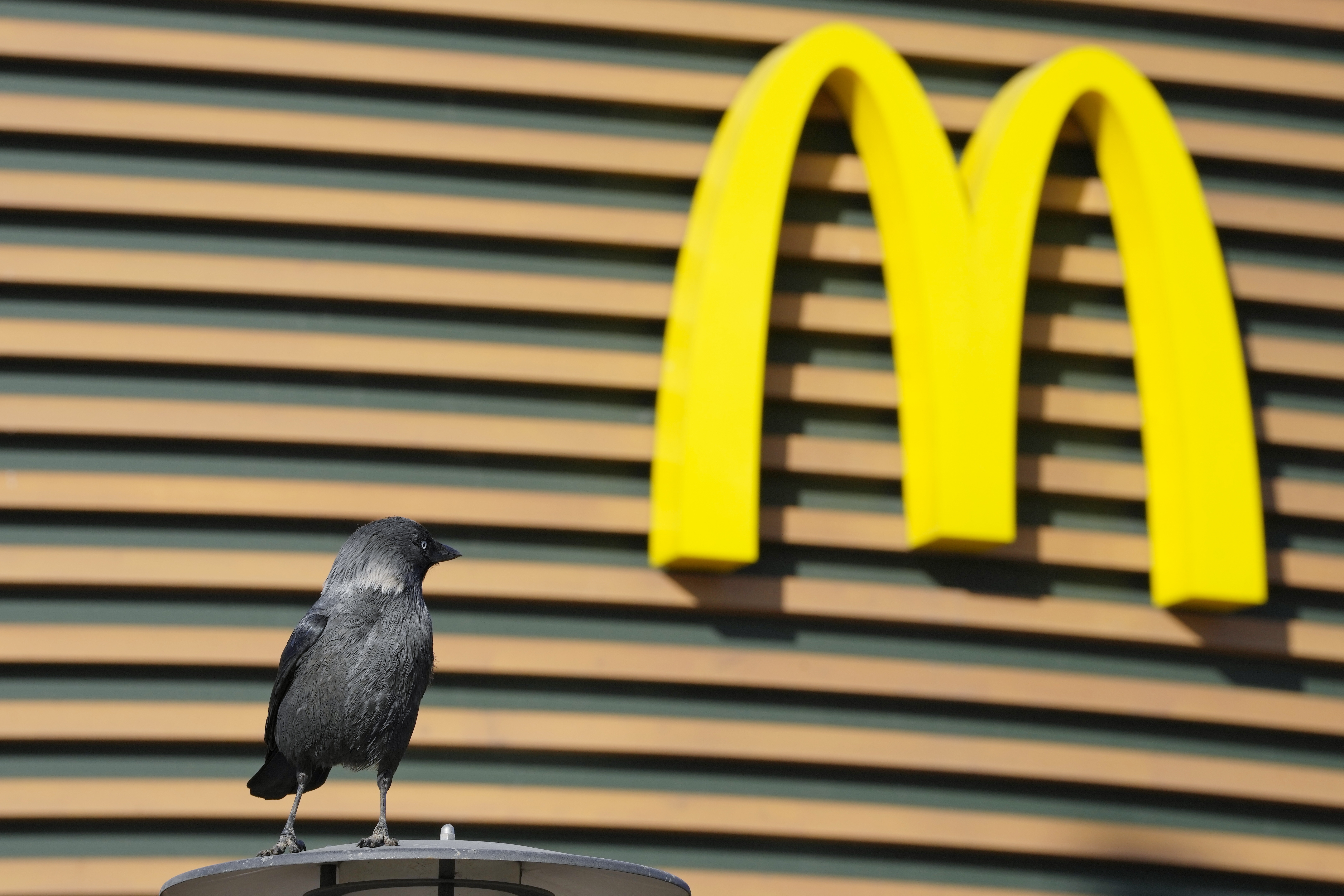McDonald's exit from Russia is costing it a lot of money — and food.
The company announced last month that it would temporarily close its restaurants in Russia because of the country's invasion of Ukraine.
It also closed restaurants in Ukraine.
READ MORE: Logo of Russian fast-food chain to replace McDonald's looks familiar

Those shutdowns cost McDonald's more than US$178.8 million last quarter.
McDonald's said in March that it would continue to pay its 62,000 Russian employees, despite shuttering operations in the country.
CEO Chris Kempczinski added during a Thursday call with analysts that McDonald's is supporting Ukrainian employees too: "In both countries, we have continued to pay employees and provide additional support."
Those staff costs, plus payments for leases and supplies, cost the company more than $38 million.
The other more than $140.8 million was from food and other items it will have to get rid of.
READ MORE: McDonald's shuts down $2.75 billion worth of stores in Russia, Ukraine

"Results included ... USD$100 million of costs for inventory in the company's supply chain that likely will be disposed of due to restaurants being temporarily closed," the company said in a statement.
The company will offer an update on its plans for the region by the end of the second quarter, Mr Kempczinski said.
There were 847 McDonald's restaurants in Russia at the close of last year, according to an investor document.
Together with another 108 in Ukraine, they accounted for nine per cent of the company's revenue in 2021.
READ MORE: Aussie mining giant pulls out of Russia

The closures hit McDonald's net income, which fell 28 per cent in the three months ending on March 31.
Elsewhere, McDonald's sales grew.
Globally, sales at restaurants open at least 13 months jumped 11.8 per cent in the quarter, driven by international locations.
In the United States, sales popped 3.5 per cent, thanks in part to higher prices.
READ MORE: Ukraine says Russian offensive in east gathering momentum
In the first quarter, McDonald's prices were up about eight per cent.
"Consumers are definitely worried about inflation," said CFO Kevin Ozan during the call.
"They're concerned about energy and gas prices."
But, he noted, the fact that groceries are also getting more expensive has "probably been a little benefit."

He added that "We are keeping ... a close watch on lower-end consumers just to make sure that we're still providing the right value."
Last year, McDonald's raised prices by about six per cent.
The company's marketing of core menu items and growth in its digital business, thanks in part to its rewards program, also contributed to the growth in US sales, McDonald's said.
from 9News https://ift.tt/sqxYfaF
via IFTTT
Comments
Post a Comment